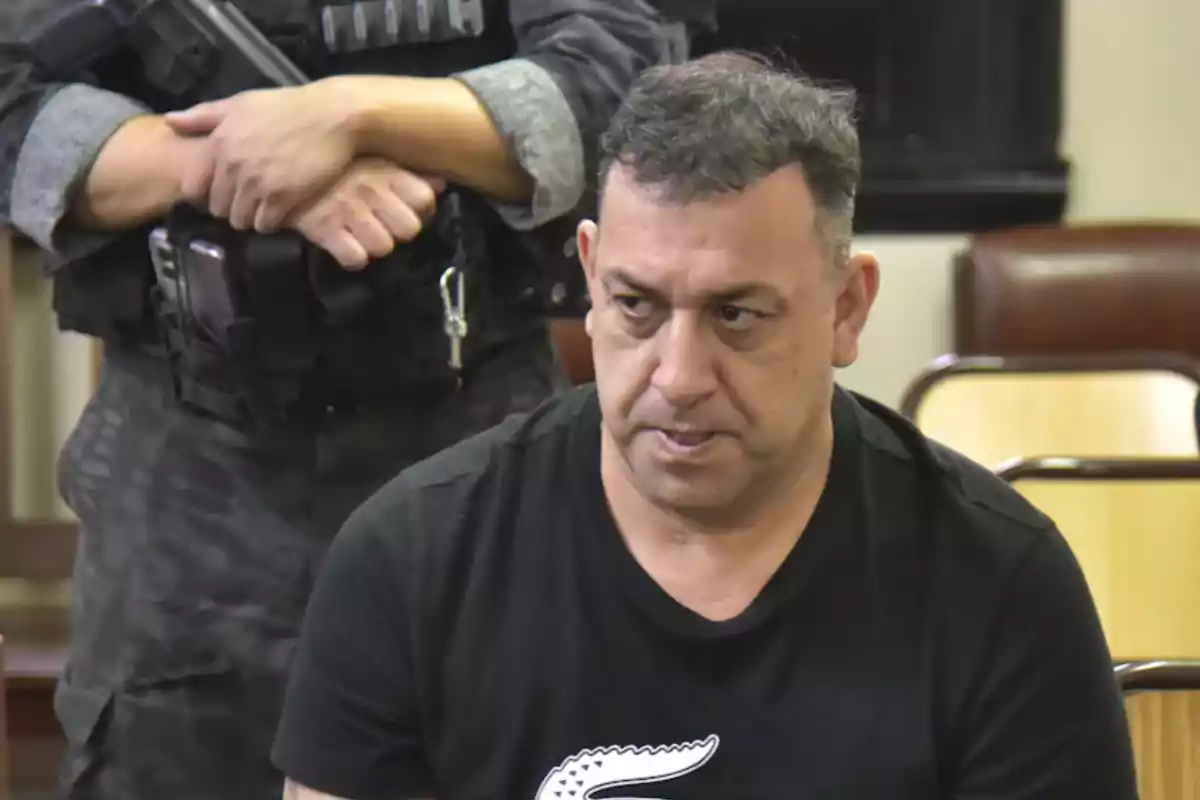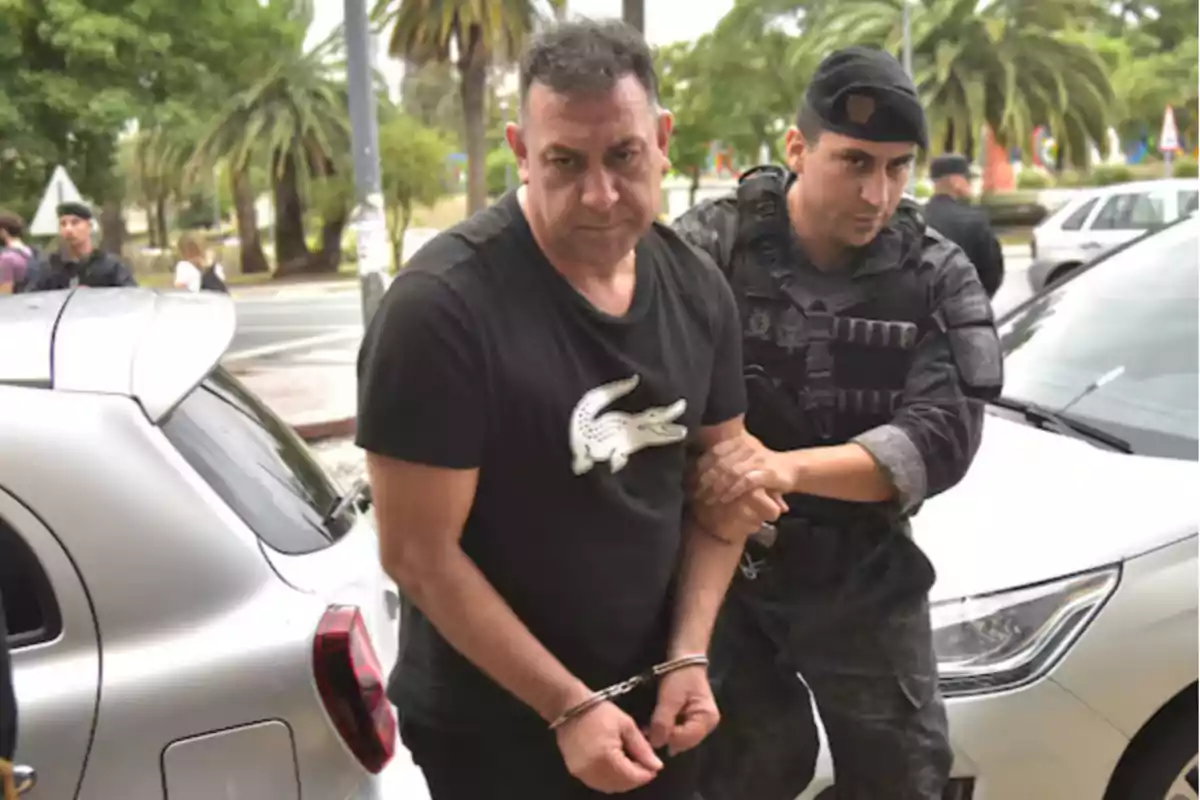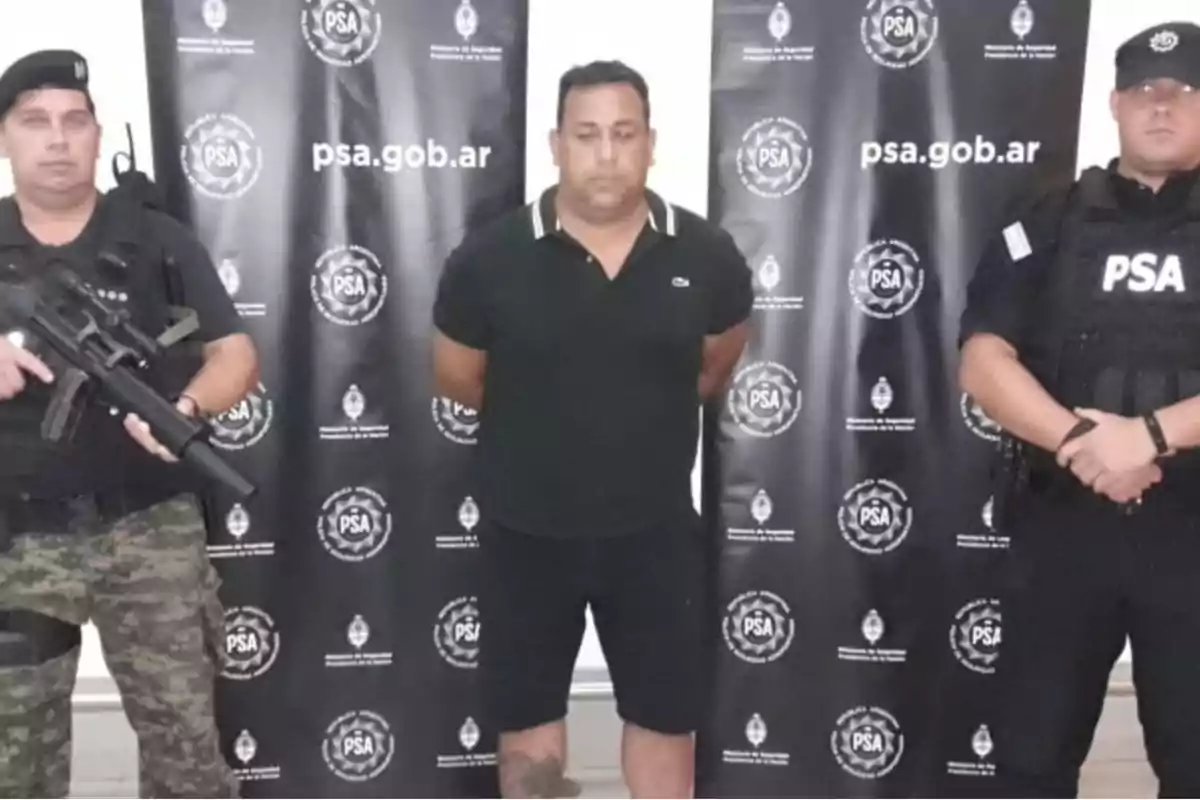
Justice Ruling: Darío Cáceres, former leader of La Fiel, convicted of drug trafficking
The former leader of Talleres' barra brava is imprisoned in Ezeiza prison and will have to serve eight and a half years of actual imprisonment
Darío Cáceres, former leader of Talleres's barra brava, was convicted of drug trafficking by the Federal Oral Court No. 2 of Córdoba capital. The Federal Chamber of Criminal Cassation confirmed the sentence of eight and a half years in prison to be served as organizer of drug trafficking. The case involved the seizure of nearly 1,300 kilograms (2,866 pounds) of marijuana in Córdoba, in an operation carried out in 2022.
Cáceres led an organization that purchased drugs for $45 million, seeking a profit of more than $100 million, according to the judiciary. Among the 13 convicted are Gustavo Medina Ramírez, Carlos Páez, Sergio Busso, and Cristian Chávez, among others. Key evidence included wiretaps, testimonies, and items seized during the raids.
The judges established that Cáceres coordinated the purchase, distribution, and transportation of narcotics from the north to Córdoba. The court also considered aggravating factors related to his previous role as leader of a violent barra brava with criminal contacts. Due to his dangerousness, Cáceres was transferred from Bouwer prison to Ezeiza prison, where he is currently serving his sentence.

The "narcobarra" case and the wiretaps that drove the investigation
The case began after the interception of a phone line used by Páez, from which contacts with other individuals involved were detected. The conversations revealed relationships with Busso and links to drug networks in the north of the country and Córdoba, exposing a coordinated logistics operation. This way, a scheme was reconstructed with differentiated roles in the organization, from suppliers to local distributors.
In one wiretap, Peralta mentioned Cáceres, Páez, and Busso as members of a gang dedicated to drug trafficking. Rita Cabral was identified as the link between Cáceres's gang and another drug cell that included Gómez, La Costa, and Benítez. That cell transported 1,288 kilograms (2,840 pounds) of marijuana hidden among bags of sawdust, which were seized in Córdoba.
Cáceres denied the accusations and claimed that he was in Brazil at the time of the operation, but the judiciary dismissed that version. The ruling determined that he maintained a leadership role within the group and gave logistical and security instructions. The court also highlighted the use of tactics such as frequent cell phone changes and contact with armed individuals.

Cassation upheld Cáceres's conviction and that of other defendants, but annulled the ruling against Páez
Chamber II of Cassation rejected the appeal filed by Cáceres's public defense and upheld the sentence imposed by the Córdoba court. The judges considered the strength of the evidence obtained during the judicial investigation to be decisive. It was proven that Cáceres exercised a leadership role and participated directly in meetings related to drug trafficking.
The court also rejected the appeals of Gómez and Medina Ramírez, supplier of the marijuana seized in the operation. The judges found that Medina Ramírez coordinated the delivery from Corrientes, from where the shipment was dispatched. The sawdust used to conceal the drugs matched that found on his property at the time of the raid.
Carlos Páez, on the other hand, obtained the annulment of his conviction because the court considered that he did not fully understand the summary trial. The decision indicated that there was pressure and insufficient legal advice during the signing of the agreement. For this reason, the case against Páez must be re-evaluated by a new court to issue a valid sentence.
More posts: